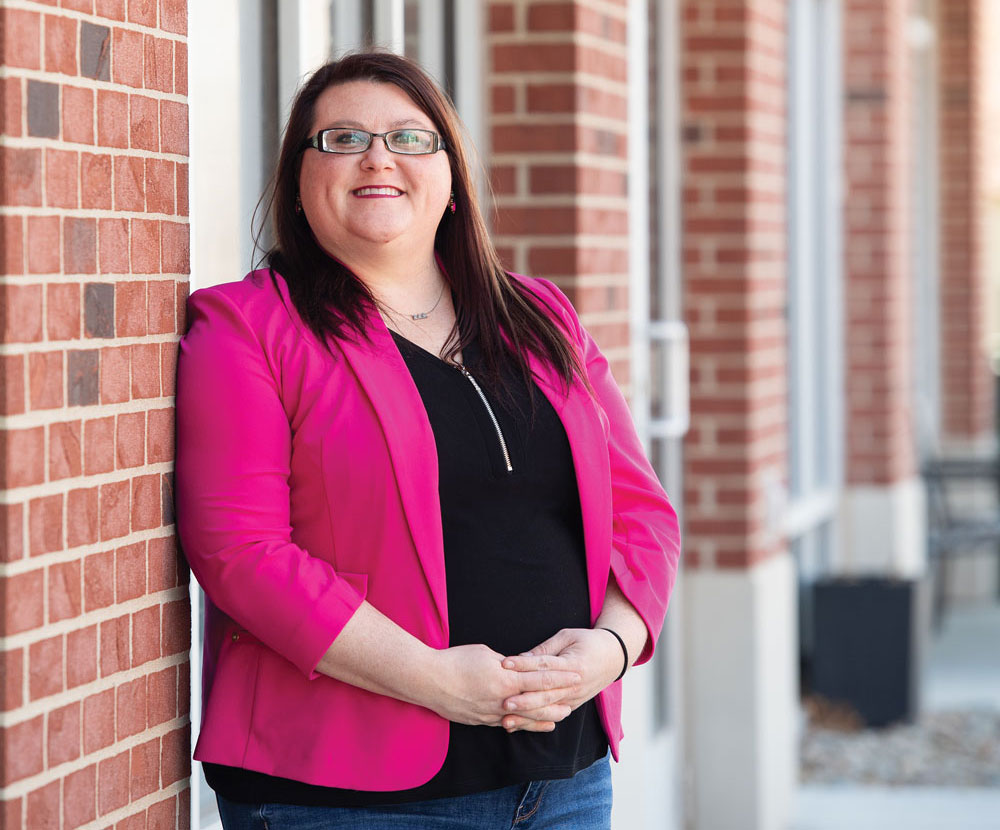A Closer Look: Dan Fink
Vice president, MercyOne Children’s Hospital

JOE GARDYASZ Aug 4, 2021 | 2:21 pm
5 min read time
1,264 wordsA Closer Look, Business Record Insider, Health and WellnessIn June, Dan Fink joined MercyOne in the newly created role of vice president of MercyOne Children’s Hospital in Des Moines. With 35 years of experience in health care administration, he’s leading a charge by MercyOne Des Moines CEO Karl Keeler to develop a clear strategy and direction for the health system’s pediatric hospital.
Fink has held executive positions across a range of pediatric hospitals, and has led significant expansions of children’s health care services in El Paso, Texas, southwest Florida and Indianapolis health systems. In his previous two positions, he held executive director positions with senior living facilities in Indiana. Earlier in his career, he held executive positions with Cook Children’s Health Care System in Fort Worth, Texas, one of the largest pediatric health systems in the country. Fink says his new role represents an enhanced level of commitment by MercyOne to improve pediatric care in Central Iowa.
I originally thought I was going to pursue medicine and so I was pre-med at [Baylor]. I was in between my sophomore and junior years, and at that time there was really no concept in the professions of medicine [for physicians] to be able to limit their hours somewhat. … I was the fifth of five children, and I really wanted to have a large family. So I just didn’t feel like the demands of medicine were going to fit well with my desire to have a really large family and to be there for them. So rather than going into a clinical progression, I went into the business administration part of medicine.
What is the focus for this position?
Karl Keeler, our CEO, had made the decision some time ago to really try to figure out how he wanted to position MercyOne in the community and the state relative to pediatric medicine. Pediatric medicine has existed here for a long time within the walls here — really since its inception — but it’s not been very well organized. The decision Karl made was that, this year, we really want to develop a strategy and a vision for pediatrics. I’ve been in four different types of markets in children’s hospitals, but this [market] is even a little more different because the pediatric care in the state historically has been pretty fragmented. … Based on my experiences, I would love to be instrumental in helping to consolidate the pediatric system of care in Des Moines.
What are the key elements needed for consolidation to happen?
As in most things, one of the primary things that needs to be created is accountability to do it. That’s where, if this is going to happen, it’s going to be extremely important that both the UnityPoint organization and the MercyOne organization agree to some kind of pathway towards that. But the community also is going to have to really demand it. I think that’s what really made it happen in Fort Worth [at Cook Children’s Health Care when it consolidated two hospitals]. It wasn’t just the hospitals, it was a community that said, “We see two organizations being small and competing with each other when we know this community could support one really great organization,” and that’s what they did.
Will a potential consolidation be your primary focus initially?
What’s your initial assessment for how MercyOne Children’s Hospital is coming out of the pandemic?
The pandemic clearly had a very strong effect on all health care operations; certainly all pediatric organizations are affected. … One of the big things we’re focusing on — and I think there’s a focus also in adult [care] but certainly with kids — has been the mental health aspects. The pandemic had really ripped children away from their normal social systems — school and day care. … It’s been pretty harmful for a lot of them. … It’s not something that’s just going to go away because kids go back to school.
Did the pandemic hit MercyOne Children’s Hospital hard financially, and is that part of the reason to consider consolidating?
To answer the first part of your question, yes, there’s no doubt that when you already have a small population that can be admitted, and then that’s cut way down because of the pandemic, you kind of make a bad problem worse. General pediatrics is not a big moneymaker for hospitals. So the way pediatrics can become extremely successful is when it’s consolidated. Not necessarily primary care, because you need pediatricians out in the communities where the kids live. But in terms of facility-based services, when you can concentrate on that, it becomes much more efficient. You’re able to attract folks whose expertise is only pediatrics, and so they’re able to create just a great patient experience for families and kids. The way we have it set up now, there is some needless duplication.
What are your goals for the second half of this year?
One of the wise things that Karl Keeler has done is that at this point, I’m really not focused on operations. … What he has me focused on is really establishing vision and strategy. So my objective in the next four to six months is to continue visiting and learning. I want to get out in the state and meet as many of the pediatricians and really, as many of the organizations that serve children as I can — particularly those that might be touched by a hospital-based organization.
What types of civic involvement have you had in your previous communities?
I’ve had the opportunity to be involved in all aspects of community service. I’ve been president of the chamber of commerce, and I’ve been able to lead citywide United Way efforts. I have been involved in various children’s charities, such as the Juvenile Diabetes Research Foundation. I have participated in the organization that’s now called the Children’s Hospital Association. I’ve had a pretty long career, so I’ve had the opportunity to participate in a variety of charitable as well as business-related or advocacy organizations for kids.
What are your favorite hobbies?
Of course, I love to spend time with my family, but I really enjoy the outdoors. I like to go to the gym — I’m sort of a gym nut. I really love the outdoors, and that’s one of the things I’m really excited about being here in Iowa. You have a lot of beautiful land, a lot of great hiking and biking.










